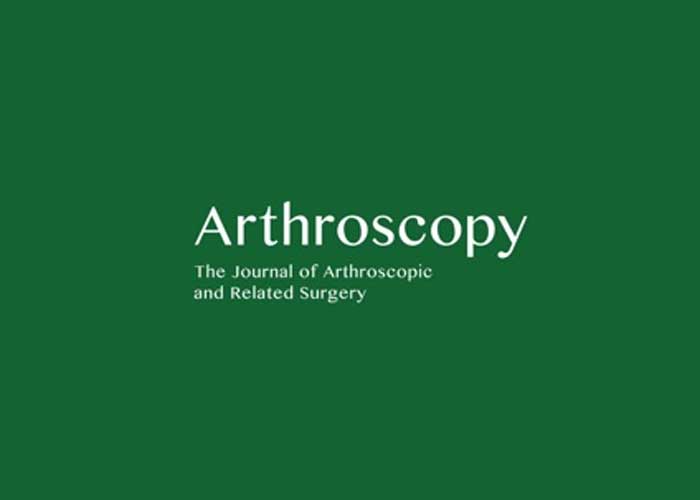Dr. Benedict Nwachukwu, Gluteus Tear Specialist in NYC, Answers

Q: What are gluteus medius and minimus tears, and who is at risk?
The gluteus minimus and medius muscles located on the outer part of the hip are important in stabilizing the pelvis and enabling essential movements such as walking and climbing stairs. Acute trauma, overuse, or degeneration may result in tears in these muscles, particularly in patients with chronic hip conditions or patients who perform repetitive activities that stress the hip abductors.
Common indicators of gluteus medius or minimus tears include:
- Pain on the outer side of the hip, especially when lying on the affected side
- Weakness during hip abduction or rotation movements
- Difficulty walking or climbing stairs
- A noticeable limp or altered gait pattern
If you are experiencing these symptoms, it may be time to consult with an orthopedic hip doctor to determine appropriate treatment options.
“Patients often think their pain is coming from the lower back or general hip arthritis, but in many cases, the root issue is a torn gluteus tendon. Once properly diagnosed, targeted treatment can make a dramatic difference in restoring strength and mobility.”
— Dr. Nwachukwu, Board Certified, Fellowship-Trained Orthopedic Surgeon
What is a gluteus medius or a gluteus minimus tear?
The gluteus medius and gluteus minimus are two of the gluteal muscles that make up the outer buttocks in the human body. They are broad, thick, and relatively strong muscles important in making sure the hips are level. These muscles work together to help maintain balance and lower body control. When these muscles are injured or become weak, the result is an abnormal gait, gluteus medius pain and lower back pain. Serving patients in Manhattan, New York City and the surrounding New York boroughs, Dr. Benedict Nwachukwu, orthopedic hip specialist, is highly trained and experienced at diagnosing and treating both gluteus medius and gluteus minimus tears.
How does a gluteus muscle become torn?
A tear in the gluteal muscles typically occurs at the area where the muscle attaches to the femur bone. Gluteal tears are often degenerative in nature and individuals who have degenerative conditions of the hip or other hip injuries, such as osteoarthritis of the hip, bursitis of the hip, iliotibial band syndrome, etc., are at a higher risk for a gluteus medius tear or gluteus minimus tear. A tear can also occur to the gluteal muscles through sports trauma in athletes who repeatedly use their hip flexor muscles. Runners, in particular, are at an increased risk for gluteus injuries
What are the symptoms of a gluteus medius or gluteus minimus tear?
The primary symptoms of a gluteus medius tear or a gluteus minimus tear include the following:
- Pain on the outside of the hip and buttocks
- Abnormal gait
- Lower back pain, which often leads patients to believe they have a lower back/spine injury, rather than a hip injury
- Buttock pain
- Weakness and limited mobility
- Symptoms that worsen with prolonged sitting, standing, or walking
- Limited mobility
What are the grades of gluteus medius or minimus tears?
Tears of the gluteus medius or of the gluteus minimus are graded in the same manner, depending on the severity of the tear:
- Grade 1: Mild pain, no loss of mobility
- Grade 2: Partial tear with mild pain; patients may experience a loss in strength and flexibility
- Grade 3: Full/complete tear; pain is more severe, complete loss of strength, difficulty moving the affected leg and limited mobility
How are gluteus medius and gluteus minimus tears diagnosed?
In most cases, tears of the gluteal muscles can be detected through a physical exam. Dr. Nwachukwu will evaluate the area causing the gluteus medius pain and will apply pressure to the hip area, as well as perform a strength-testing exam which will reveal any additional weakness in the hip. In some patients, an abnormal gait is visible; as the leg associated with the injured area will drag or appear to be weaker. A diagnosis can typically be made via physical exam. However, in order to rule out other injuries and conditions that may be causing the pain and the other noted symptoms, Dr. Nwachukwu may order an X-ray and/or MRI to better visualize the structures around the hip.
What is the treatment for gluteal tears?
Non-Surgical Treatment:
In some cases, depending on the severity and grade of the tear, conservative treatment will be prescribed to treat the injury. Ice and over-the-counter anti-inflammatory drugs may be recommended in order to reduce the pain and inflammation. Athletes may need to avoid sports activities and limit prolonged exercises and movement so that healing can occur.
Surgical Treatment:
For patients who require gluteus repair surgery, Dr. Nwachukwu will use an arthroscopic (endoscopic) or open surgical approach depending on the size and chronicity of the tear. The gluteus medius tear and/or gluteus minimus tear is reattached during surgery using sutures.
How long is the recovery following the repair of a gluteus medius or gluteus minimus Tear?
Typically, patients can expect to be partial weight-bearing for 6 weeks following surgery. It typically takes 3 months for tissues to heal and after that therapy is focused on restoring joint mechanics. After surgery, improvements will continue for approximately a year or more.
Dr. Nwachukwu will also provide a well-supervised physical therapy program beginning with therapy immediately following hip surgery. It is essential that movement and mobility begin slowly, but immediately following surgery, so a normal range of motion can be achieved over time. It is very important that patients follow the protocol for post-op recovery as set forth by Dr. Nwachukwu.
Gluteus Medius and Gluteus Minimus – Hip Abductor Tears
For more information on gluteus medius and gluteus minimus tears and the treatment available, please contact the office of Benedict Nwachukwu, MD, orthopedic hip specialist serving Manhattan, New York City and surrounding New York boroughs.







